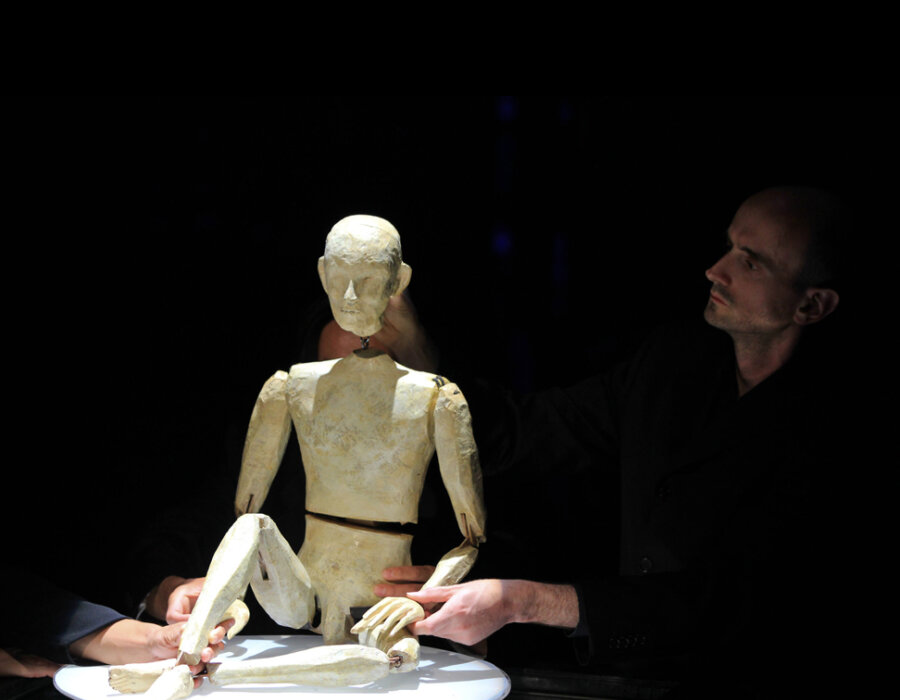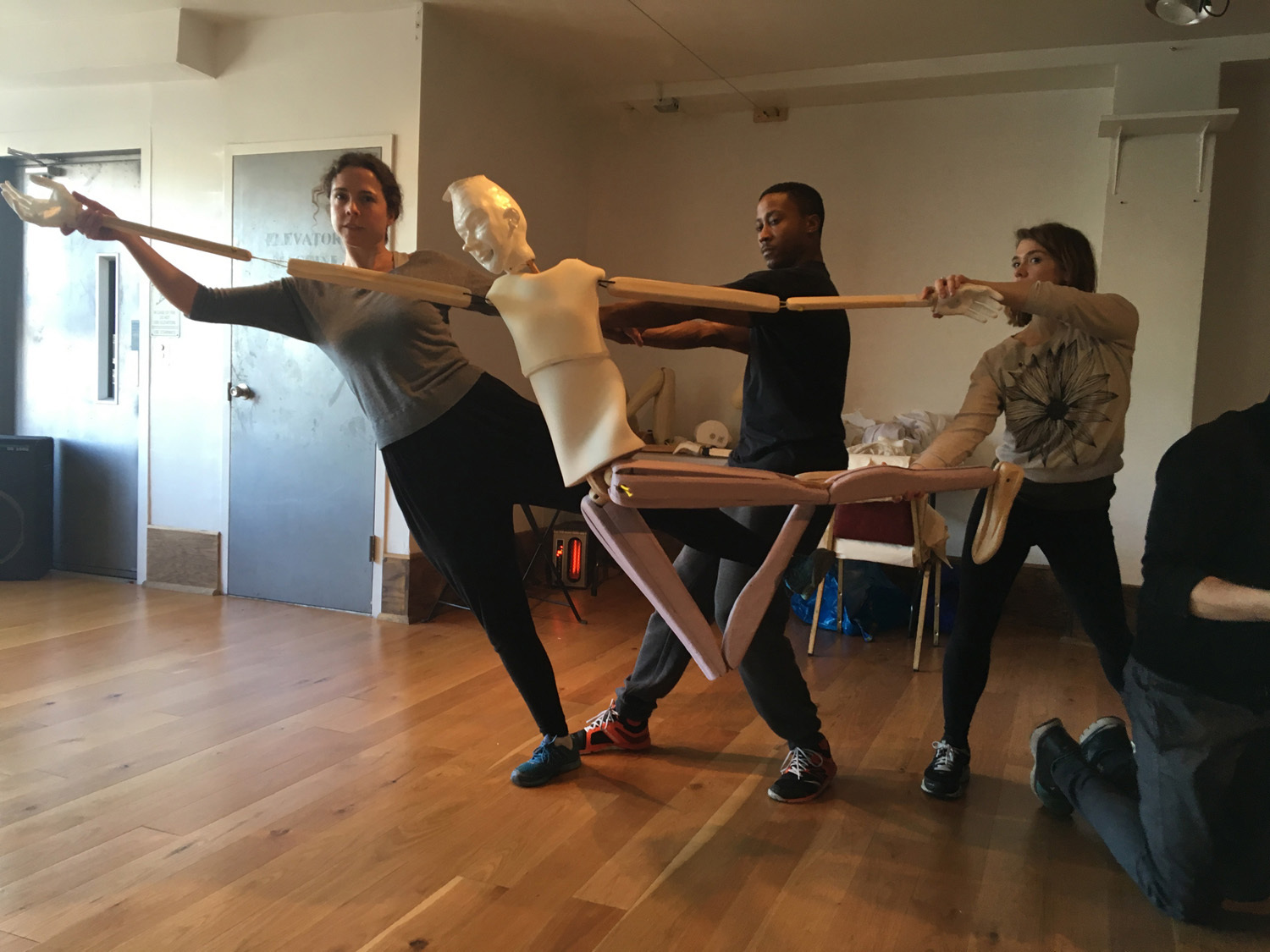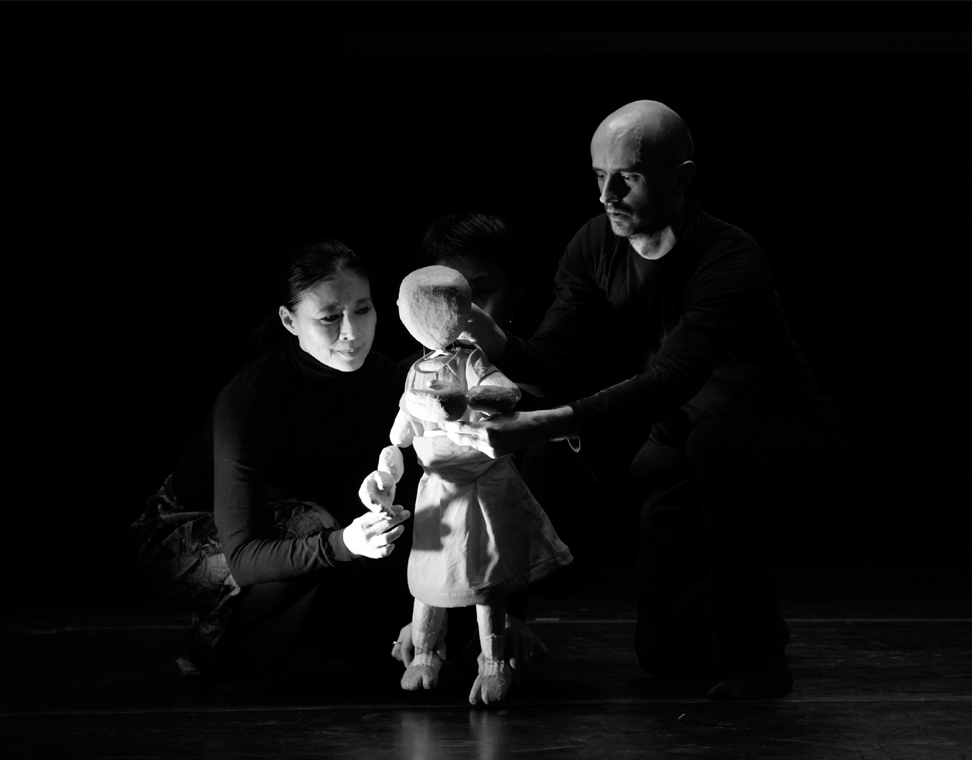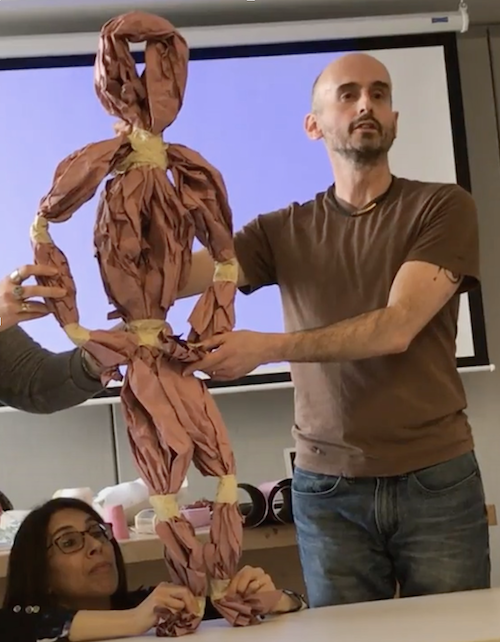
Q+A with Puppetry Performance Tutor Fergus J. Walsh
We are thrilled to welcome back Fergus J. Walsh to lead our upcoming Puppetry Performance Weekend Workshop taking place on January 14th and 15th.
Our next Puppet Performance Weekend Workshop short course is running on January 14th. Book your spot HERE
Q: Describe your passion for puppetry
A: My passion for puppetry comes from a desire to see magic happen on stage. Seeing inanimate materials - wood, fabric, foam etc. - come to life and become imbued with thought and emotion is extraordinary. Puppetry requires buy-in from an audience. They must suspend their disbelief and invest in the performance. This enables the magic to happen when the performer and the audience together create life and go on an emotional journey with the puppet character. It’s a visceral experience which is what theatre should be about, I think.

Q: What will people learn on the course?
A: People will learn the basics of puppetry performance. How to give life to a collection of materials so that it becomes a living, breathing, thinking creature in the eyes of the audience. The course is very hands-on - we learn by doing - and it is very supportive and encouraging and fun also.

Q: What kind of people participate on the course?
A: The course is ideal for all kinds of performers who wish to expand their skill set. Traditionally, people talk about the “triple threat” on stage - performers who can sing, dance and act - and who therefore are more castable in a variety of roles. Increasingly, directors look for people with additional skills, such as puppetry or acrobatics, as many shows on the West End or Broadway require these skills too.
In addition, there are many people who are interested in puppetry because they have seen shows with puppets on TV, or they work in an educational or health setting where the benefits or puppetry are well known, and these people will also benefit from this course.
Q: What experience do people need?
A: No experience is necessary. We start at the beginning and develop our skills in a gradual and progressive manner over two days. It should also be said though, that if you have done puppetry before you will still benefit from this course. I have been a professional puppeteer for over 25 years and am still learning every time I pick up a puppet.

What are the elements of puppetry?
In simple terms, giving life to an inanimate object through breath, movement, focus etc. However, humans have been trying to figure out puppetry since they first lit a fire and made shadows on the wall of their caves thousands of years ago. So, a simple answer is inevitably more complicated, and it’s the exploration of trying to get to the answer that is the enjoyable part!
About the tutor
Fergus J. Walsh is a puppet artist from Dublin. He has an MFA in Puppetry from the University of Connecticut and has been an artist-in-residence at the Museum of Arts and Design in New York City. He was part of the Wakka Wakka production team on the show Saga, winner of a Drama Desk award for puppetry innovation, and was the lead puppeteer on the world premieres of The Wind Up Bird Chronicle and The Radio City Spring Spectacular. In 2014, he founded AchesonWalsh Studios, a puppet creation studio providing design, fabrication and direction services, with Matt Acheson. Their clients include Amazon Studios, various Broadway Theatres, Cirque Du Soleil, Disney, Lincoln Center Theater, Radio City Music Hall, the Children’s Museum of Indianapolis, and many others. Fergus is an Associate Professor of Puppetry at the University of Connecticut.

